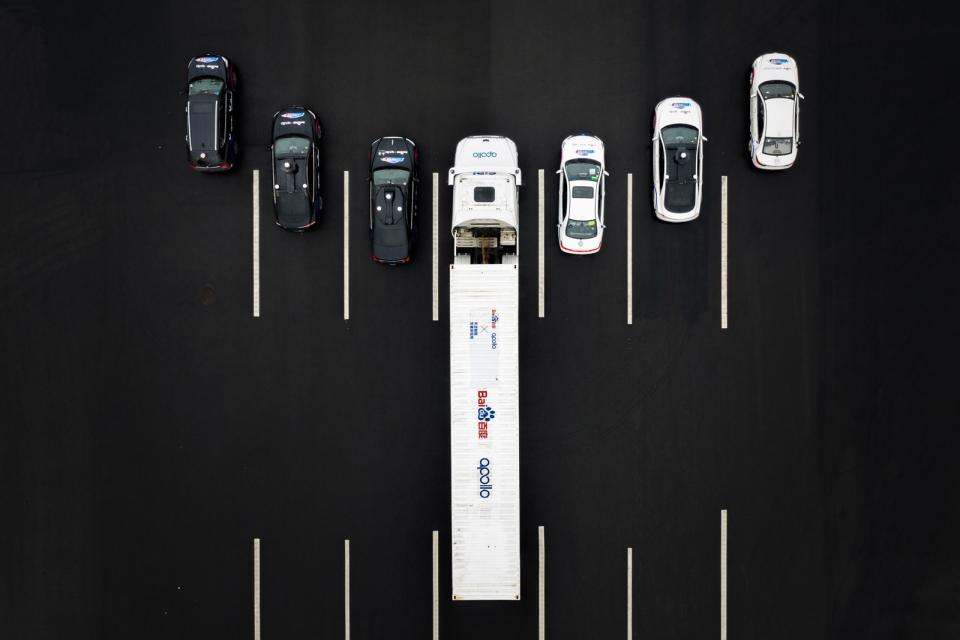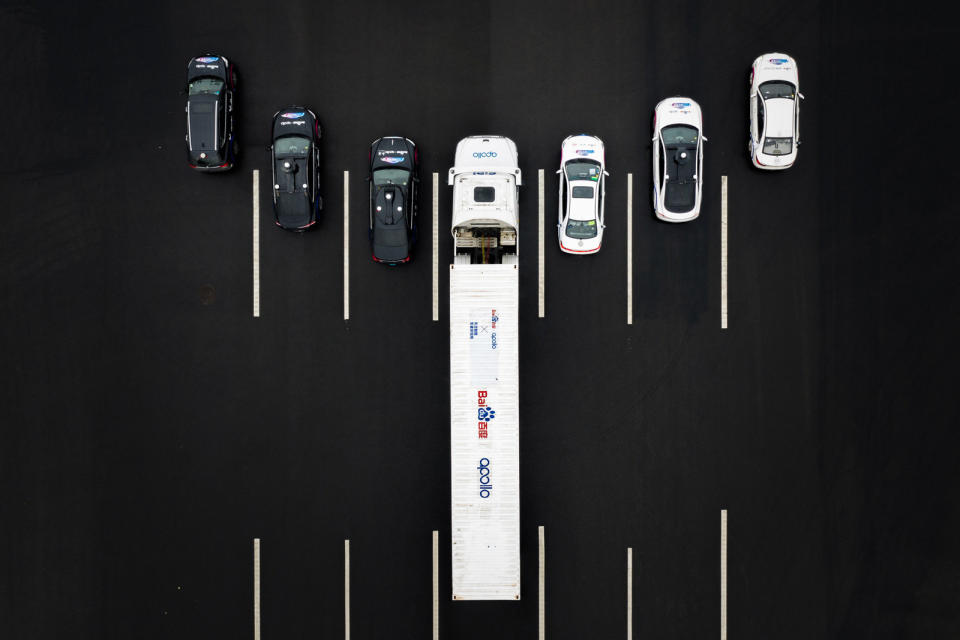Baidu's self-driving car platform can handle parking and speed bumps
There's a program for big business, too.
Baidu is starting 2019 with a big boost to its autonomous vehicle ambitions. It's launching Apollo 3.5, an updated self-driving platform it claims is the first open source system that can handle "complex" driving in both the city and suburbia. It's now better-suited to the challenges of the road, including parking, narrow lanes and speed bumps. You won't have to wait too long to see it in action -- Udelv is is planning to roll out as many as 100 test vehicles across the San Francisco Bay Area and other parts of the US.
The tech giant also wants to court the business crowd. It's introducing an Apollo Enterprise bundle of products that court large-scale needs, whether it's hands-free highway driving, map services or autonomous parking valets. You might not recognize it at a glance, but you'll recognize the partners -- Baidu is working to roll the feature into cars from Ford, Hyundai Kia, BYD, Chery, Great Wall and WM Motor.
To round things out, Baidu has opened up the source code for the framework that helps connected cars talk to each other, traffic lights and other city infrastructure. The hope, as you might imagine, is that Baidu's tech might become a common language in the connected car world. That could be helpful for automakers that don't have the resources to craft their own features.




